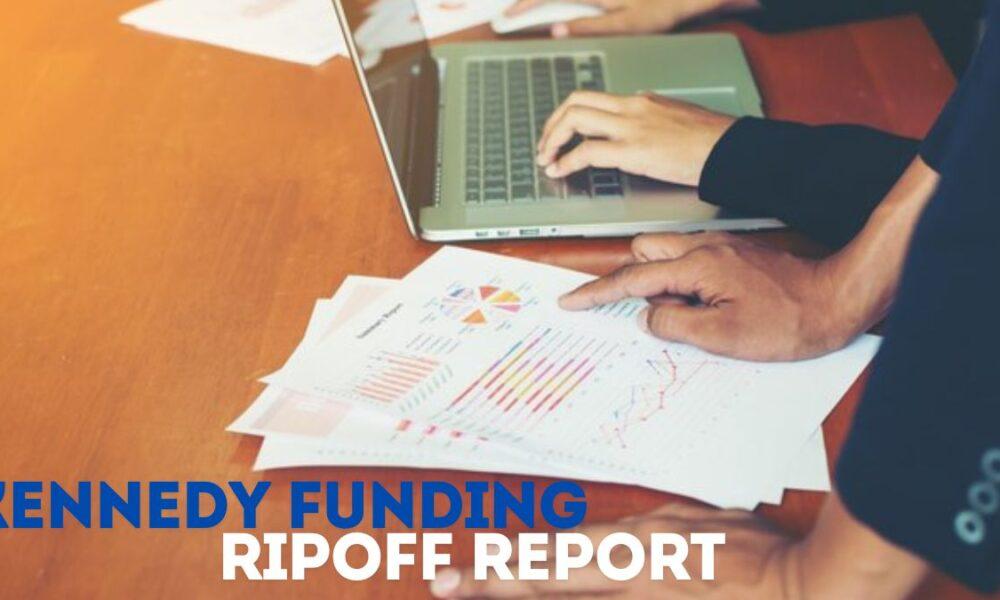
Introduction
In recent years, the world of private lending and real estate finance has seen significant changes, with various companies emerging to cater to the growing demand for quick capital. Among these is Kennedy Funding, a private lender that has attracted both interest and controversy. Reports and testimonials on platforms like Kennedy Funding Ripoff Report have painted a complex picture of the company, raising questions about its practices and customer experiences. This article delves into the origins of Kennedy Funding, examines the claims made in the Kennedy Funding Ripoff Report, and analyzes the broader implications for the private lending industry.
Understanding Kennedy Funding
Company Background
Founded in 1988, Kennedy Funding Ripoff Report specializes in providing bridge loans and other forms of financing for real estate projects. The firm claims to cater to a wide array of clients, including developers, investors, and business owners seeking quick access to capital. Operating primarily in the United States, Kennedy Funding positions itself as a solution for those who may not qualify for traditional financing options.
Services Offered
Kennedy Funding’s offerings include:
Bridge Loans: Short-term loans designed to provide immediate funding for real estate projects.
Hard Money Loans: Loans secured by real estate, typically with higher interest rates and shorter terms.
Construction Financing: Funding specifically for construction projects.
Portfolio Loans: Financing options tailored for investors looking to acquire multiple properties.
The company’s website highlights its ability to close deals quickly, which is often an appealing factor for clients needing immediate financial assistance.
The Kennedy Funding Ripoff Report and Customer Complaints

Overview of Kennedy Funding Ripoff Report
Kennedy Funding Ripoff Report is an online platform where consumers can file complaints about businesses, detailing their experiences and warning others about potentially deceptive practices. While the site can provide valuable insights into customer satisfaction, it also has faced criticism for hosting unverified claims and potentially damaging reputations without due process.
Claims Against Kennedy Funding
Multiple entries on Kennedy Funding Ripoff Report concerning Kennedy Funding highlight a variety of grievances. Common complaints include:
High Fees and Interest Rates: Customers report being charged excessive fees that were not clearly disclosed at the outset.
Poor Communication: Some users have expressed frustration over a lack of responsiveness from the company, citing difficulties in obtaining timely updates about their loans.
Unfulfilled Promises: There are claims that Kennedy Funding did not deliver on commitments regarding funding timelines or loan amounts.
Legal and Ethical Concerns: Some reports have raised questions about the company’s practices in handling loans and interactions with clients, suggesting potential ethical breaches.
These claims paint a concerning picture for potential clients and raise questions about the company’s integrity.
Analyzing the Complaints
High Fees and Interest Rates
One of the most frequently mentioned issues in the Kennedy Funding Ripoff Report complaints is the high fees associated with Kennedy Funding’s loans. While private lending often comes with higher interest rates compared to traditional banks, several customers allege that Kennedy Funding’s fees exceeded industry standards. It is essential to recognize that private lenders operate in a different regulatory environment than banks, which may lead to higher costs.
Communication Challenges
Effective communication is critical in the lending process. Several complaints highlighted difficulties in reaching representatives at Kennedy Funding, resulting in uncertainty and stress for borrowers. Clear communication about loan terms, processes, and expectations is vital for maintaining trust and ensuring a positive customer experience.
Unmet Expectations
Many users voiced disappointment regarding unmet expectations. Complaints about funding timelines indicate that some borrowers experienced delays, leading to project setbacks. In the world of real estate finance, timing can be crucial, and any delays can have substantial financial implications for developers and investors.
Legal and Ethical Implications
The claims surrounding Kennedy Funding raise broader legal and ethical questions about practices in the private lending industry. Issues such as transparency, fair lending practices, and accountability are critical for ensuring that borrowers can make informed decisions. An examination of Kennedy Funding’s operations can provide insights into whether these practices align with industry standards.
The Broader Context: Private Lending Industry Challenges

The Rise of Private Lending
The demand for private lending has surged in recent years, fueled by a tightening of traditional lending criteria and an increase in real estate investment. Many borrowers turn to private lenders for quick access to capital, often under the assumption that these loans will be more flexible and accommodating than those from banks.
Regulatory Landscape
The private lending industry operates with less regulatory oversight than traditional banks. This lack of regulation can create opportunities for predatory practices, such as excessive fees, high-interest rates, and misleading advertising. Borrowers must exercise due diligence when selecting a private lender to ensure they understand the terms and implications of their loans.
Educating Borrowers
For potential clients of companies like Kennedy Funding, education is key. Understanding the nuances of private lending, including potential risks and costs, can help borrowers make informed decisions. Resources such as financial advisors, legal counsel, and consumer advocacy organizations can play a crucial role in providing guidance.
Case Studies: Success and Failure in Private Lending
Success Stories
Despite the concerns raised in complaints, there are instances of successful transactions with Kennedy Funding. Some clients have reported positive experiences, citing the company’s ability to close loans quickly and effectively. These success stories illustrate that while some customers may have had negative experiences, others have found value in the services offered by Kennedy Funding.
Negative Experiences
Conversely, the negative experiences shared on platforms like Kennedy Funding Ripoff Report cannot be ignored. They serve as cautionary tales for potential clients and highlight the importance of thorough research before engaging with any lender. The disparity in customer experiences underscores the need for transparency and accountability in the private lending sector.
Navigating the Private Lending Landscape

Researching Lenders
When considering private lending options, potential borrowers should conduct extensive research on lenders. This includes reviewing online reviews, seeking recommendations, and verifying the lender’s credentials. A lender with a strong reputation for transparency and ethical practices is more likely to provide a positive experience.
Understanding Loan Terms
Before entering into any loan agreement, borrowers must carefully review the terms and conditions. This includes understanding the interest rates, fees, repayment schedules, and any potential penalties. Seeking professional advice from financial experts or legal counsel can provide additional clarity and protection.
Utilizing Consumer Protection Resources
Consumers should be aware of their rights and the resources available to them in case of disputes. Organizations that advocate for consumer rights can offer guidance on navigating complaints and seeking resolution. Additionally, understanding state and federal lending regulations can empower borrowers to advocate for themselves.
Conclusion
The discussions surrounding Kennedy Funding, particularly the claims found on Kennedy Funding Ripoff Report, highlight significant concerns within the private lending industry. While some clients have reported positive experiences, the negative testimonials raise important questions about transparency, communication, and ethical practices.
As the demand for private lending continues to grow, it is crucial for potential borrowers to approach these options with caution and due diligence. By educating themselves, researching lenders, and understanding loan terms, individuals can navigate the complexities of private lending more effectively.
Ultimately, platforms like Kennedy Funding Ripoff Report serve as valuable resources for consumers, shedding light on both positive and negative experiences. As the industry evolves, fostering a culture of accountability and transparency will be essential for ensuring that borrowers can access the financing they need while protecting their interests.


